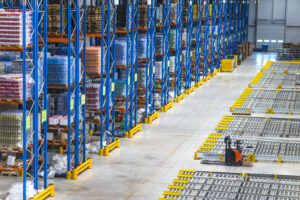International logistics processes go through various stages, and customs procedures play a significant role in these processes. While customs procedures are crucial for the regulation and security of international trade, they can sometimes encounter a series of challenges and issues. In this article, we will discuss some tips to solve customs problems in international logistics.
Make a Good Plan
Customs procedures are a critical part of the international transportation process. During the planning stage, it is important to consider elements such as the timeline of customs procedures, required documents, and permits. Good planning allows you to be prepared for unexpected delays and issues.

Provide the Correct Documents
Providing the correct documents during customs procedures is a significant factor in preventing problems. Presenting the necessary documents accurately and completely, such as customs declarations, invoices, and package content documents, ensures the smooth processing of the process.
Follow Legal Regulations
Customs regulations vary from country to country. Understanding the customs laws and regulations of the country you are importing or exporting to is essential in preventing issues. Following customs laws reduces the risk of unnecessary penalties or delays.
Work with a Professional Customs Broker
Customs procedures can be complex, and errors can be costly. Working with a professional customs broker allows you to entrust the procedures to experts and helps the process progress more efficiently and without errors. Customs brokers have up-to-date information and can comply with legal requirements while identifying and providing solutions for potential issues.

Strengthen Communication
Communication is crucial in customs procedures. Establishing effective communication with your logistics providers, carriers, customers, and customs authorities helps the process proceed smoothly. Information exchange and collaboration enable the quick resolution of potential problems.
Prevent Unnecessary Document and Data Errors
One of the most common issues in customs procedures is document and data errors. Ensure that the documents used in import or export processes are accurate and consistent. Additionally, carefully fill out customs declarations and other relevant forms, ensuring that the necessary information is complete and accurate. Such errors can result in time loss and unnecessary additional procedures.
Utilize Technological Solutions
With the advancement of technology, there are many automation and digitization tools available that facilitate customs procedures. Especially for customs declarations and document processing, using electronic systems can speed up the process and prevent errors. Filling out and submitting customs declarations electronically can make the procedures more efficient and effective.

Perform Risk Analysis
During customs procedures, you may encounter certain risks. For example, the import or export of specific products may be subject to stricter inspections by customs authorities. Performing risk analysis allows you to identify potential problems in advance and take appropriate measures. This prevents unexpected issues and makes the process more organized.
Train and Stay Updated
Customs procedures in international logistics are subject to constant changes in legal regulations. Keeping up with changes and updates in customs regulations is important in preventing issues. Training your employees involved in customs procedures and equipping them with up-to-date knowledge can help manage the process more efficiently.
In conclusion, solving customs problems in international logistics requires the implementation of the right strategies and tips. Factors such as planning, providing the correct documents, following legal regulations, seeking professional support, effective communication, error prevention, technology usage, risk analysis, and training and staying updated contribute to making customs procedures more efficient and smooth. By minimizing customs-related issues, you can enhance the success of your logistics operations.

Remember that customs procedures may vary for each country, so it is important to understand and comply with the customs regulations of your target country. Additionally, establishing good relationships with customs authorities can be effective in problem-solving. To minimize issues in customs procedures, it is important to stay constantly updated and closely monitor the process.



 Remember that customs procedures may vary for each country, so it is important to understand and comply with the customs regulations of your target country. Additionally, establishing good relationships with customs authorities can be effective in problem-solving. To minimize issues in customs procedures, it is important to stay constantly updated and closely monitor the process.
Remember that customs procedures may vary for each country, so it is important to understand and comply with the customs regulations of your target country. Additionally, establishing good relationships with customs authorities can be effective in problem-solving. To minimize issues in customs procedures, it is important to stay constantly updated and closely monitor the process. 


